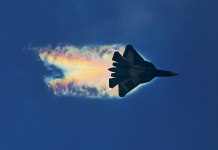For a country like India that imports more than 80% of its total oil requirement, the unprecedented fall in US crude oil prices that hit a negative of $37.63 per barrel on Monday, raised hopes that it will lead to a fall in domestic prices also.
Indian State Of Gujarat Luring Japan, US Companies To Shift Production Base From China
However, it may not be so as the fall in prices has come at a time of coronavirus pandemic that has reduced economic growth and may offset the gains from reduced prices.
The negative price per barrel is not going to have any significant impact on India’s petrol and diesel prices because for starters — India buys its oil from Middle Eastern countries such as Iraq, Saudi Arabia, Iran, etc.
Also, India buys Brent crude whose prices are still stagnated around positive $27 per barrel even after a drop of 5%, while the negative $37.63 per barrel prices of oil that has grabbed much of the attention are of West Texas Intermediate crude or WTI which caters mostly to US, Canadian and Mexican markets.
Brent Crude and West Texas Intermediate crude are a trading classification that serves as benchmark prices of oil worldwide. OPEC a group consisting of 13 of the most powerful oil-exporting countries, uses Brent as their pricing benchmark.
Considering that India does opt to buy oil from WTI, New Delhi will only benefit for a maximum period of 10 days every time it buys the oil as India’s storage capacity is just 5.33 million tonnes (enough to meet 9.7 days of requirement).
India’s plan to augment its storage capacity to 90-100 days remains unrealized so far although last year the Government decided to fast track it to protect itself from political risk in the Middle East and in the event of a war. India has a target of storing over 15 million tonnes of strategic oil reserves.
Another factor to dampen lingering hopes of a fall in oil prices is the absolute halting in economic activity and no significant demand for oil due to the outbreak of coronavirus.
According to a report by livemint, most refiners purchase crude oil 2 months in advance based on prices prevailing at the time. The data by Petroleum ministry showed that the cost of crude oil was at $20.56 a barrel on 17 April.
“The steep fall in prices started from early March, so given the time lag, we would expect to see price falls only from May, if any,” Refinitiv Oil Research’s director Yan Chong Yaw told livemint.
India’s annual fuel consumption will be slated to contract by 5.6% in 2020 compared with a growth forecast of 2.4% in March according to the latest report by The International Energy Agency (IEA). It estimates India’s petrol demand will decline by 9%, while diesel will drop by 6.1%.
India Supplying Medicines To Afghanistan, While Pakistan Sponsoring Terrorism: Afghan Experts
A large part of retail oil prices in India generates massive revenues for the Government. An increase in taxes increases the revenue as it helps to reduce the fiscal deficit. In fact, the Government last month increased duties on petrol and diesel by Rs 3 per liter, the steepest hike since 2012, after crude oil prices went crashing down.
The Centre also notified Rs. 1 per liter hike in road and infrastructure cess collected as additional excise duty and a Rs 2 per liter increase in special excise duty. All these results in a much-needed tax gain for the Government which is facing an enormous revenue slump.




